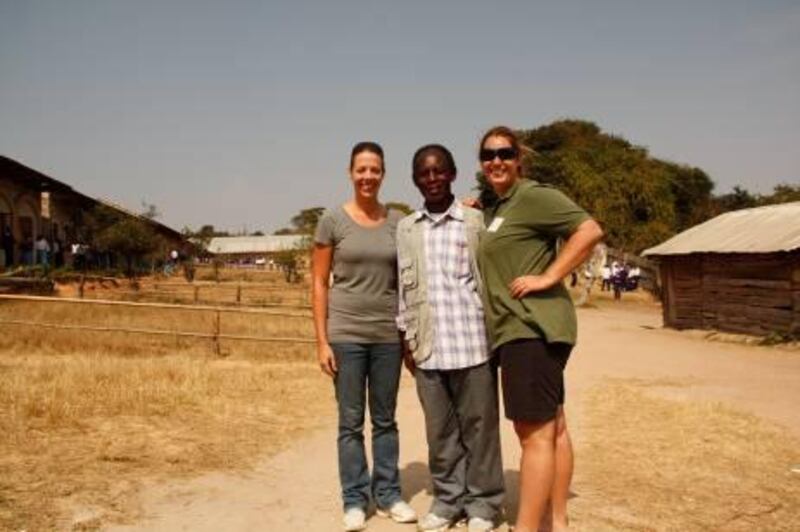DUBAI // Bouncing over rugged terrain in a four-wheel-drive vehicle equipped with solar panels, a tent and a fridge, Tamin-Lee Connolly has begun her mission to deliver solar-powered laptops to children in rural Africa.
The punishing landscape is just one of the challenges for the Dubai-based geography teacher. Ms Connolly, 31, is also visiting schools to identify potential problems before the 5,000 laptops are delivered.
Her journey has taken her to Malawi, Mozambique and Tanzania over the past month, which has helped her gain a broader understanding of the requirements on the ground.
"It is important to see first-hand what works and what doesn't," said Ms Connolly, who since the end of July has logged more than 8,000 kilometres in a Toyota Land Cruiser nicknamed Maggie, short for the Swahili word Magurudumu, or wheels.
It is part of her 60,000km, year-long African tour to help deliver laptops to schoolchildren in Burundi, Mozambique, Rwanda, Namibia, Ethiopia, Ghana and Morocco.
"I have noticed that a major asset that these villages need are inverters for the solar panels," she said. "There is enough energy coming through the solar panels, but they don't have enough inverters with enough plugs to charge up the laptops."
Inverters are a key component in the solar industry. They convert sunlight captured by solar panels into electricity that can be used for practical purposes.
At schools in Mozambique and South Africa, she said, basic equipment such as inverters and extension cords with multiple plug points were needed, and electrical work was required in school buildings.
One school in Mbulaua, a village near Mozambique's Gorongosa National Park, had two solar panels and 50 solar-powered laptops. But with just one inverter "they can only charge two or three laptops a day", said Ms Connolly.
"So these are of no use really at the moment."
Funding channels for Ms Connolly's campaign are open on her Facebook page, Everything Except the Horn, where she posts updates on sponsorship requirements.
She has already raised enough money to buy 5,000 laptops, which cost Dh740 apiece. Friends, family, local companies and parents of children who attend Emirates International all contributed, while other well-wishers donated Dh116,000 towards the cost of her trip.
Ms Connolly has also joined up with One Laptop Per Child (OLPC), a non-profit organisation that produces low-cost computers. The group provides the laptops, identifies needy schools, and pays shipping costs.
While covering ground in Africa, another challenge for Ms Connolly is coordinating with OLPC representatives in each country, since she has not been given the exact dates when shipments will reach each school.
Still, she is preparing for the arrival of the laptops, which is scheduled over the next two months.
Her experience driving in the desert with a Dubai 4x4 club has helped her handle the demanding terrain in Africa.
"The driving has been easy because of all my off-road experience in Dubai," she said. "I would have found it very challenging otherwise."
As she surveys the landscape, she is identifying other schools that require assistance. She also aims to start a teachers' programme at St Mary's school in Ulete village, near Iringa city in central Tanzania.
"I hope it will be up and running by next year," she said. "Teachers can come over the holidays to teach a unit or topic."
She is also looking for sponsors to fund a computer lab and the purchase of solar panels at St Mary's.
"There is a big need in Africa for education, but we simply don't have the facilities," said Father Modeset Massika, who founded St Mary's.
"Tamin has an amazing challenge; she will touch the lives of so many children."







